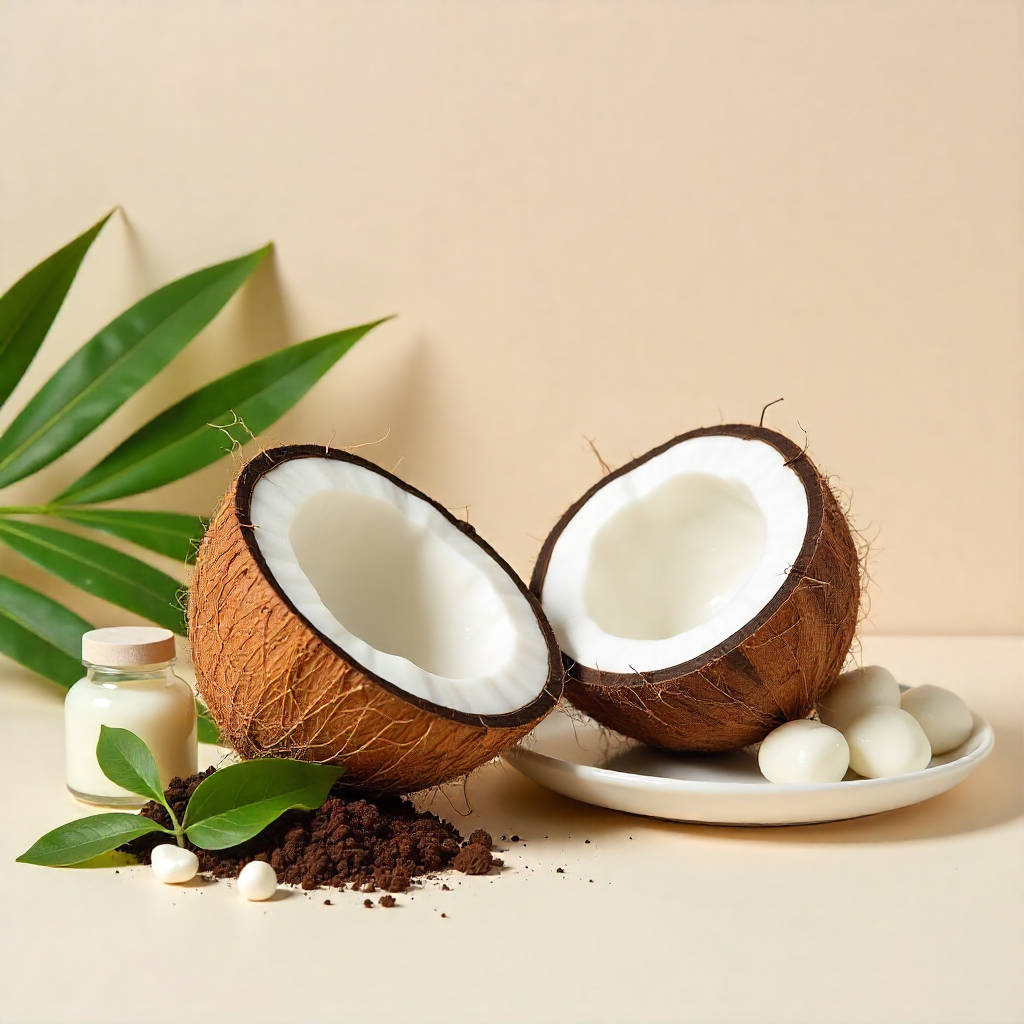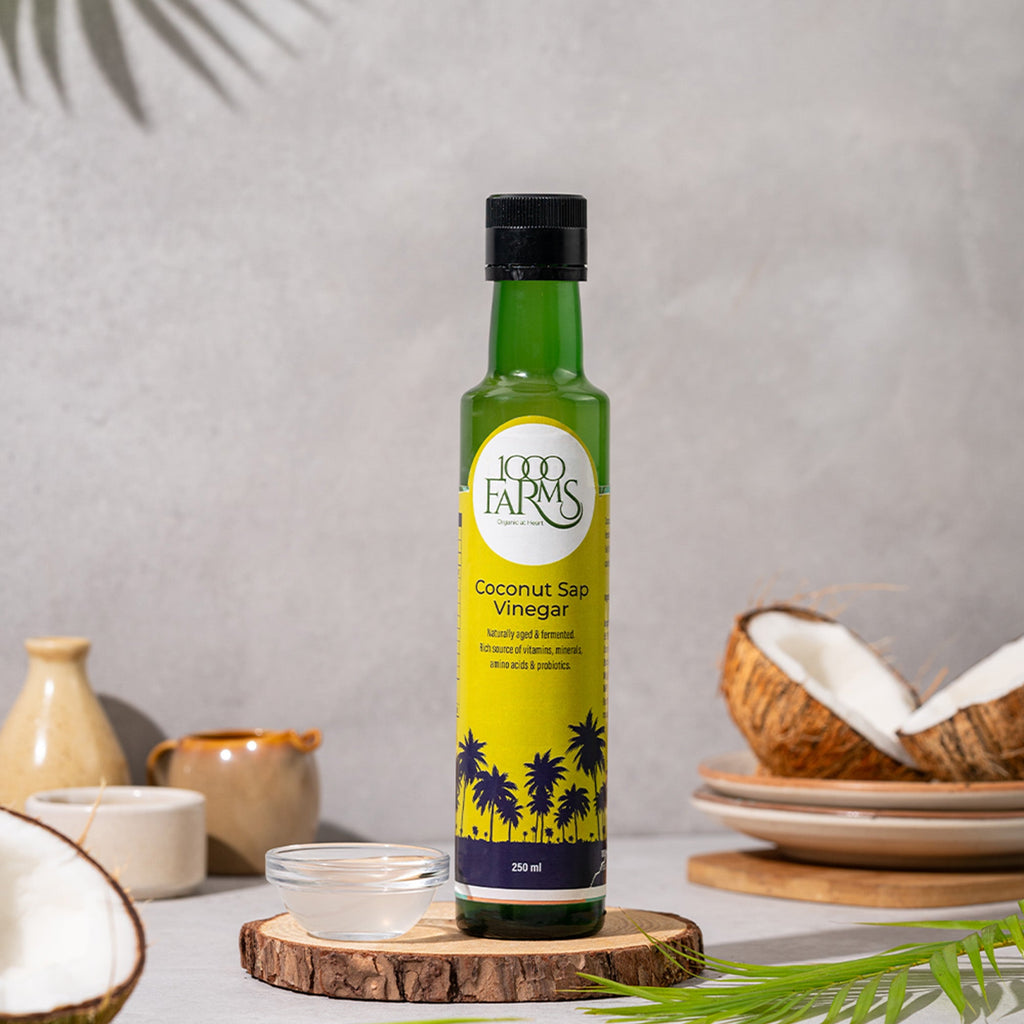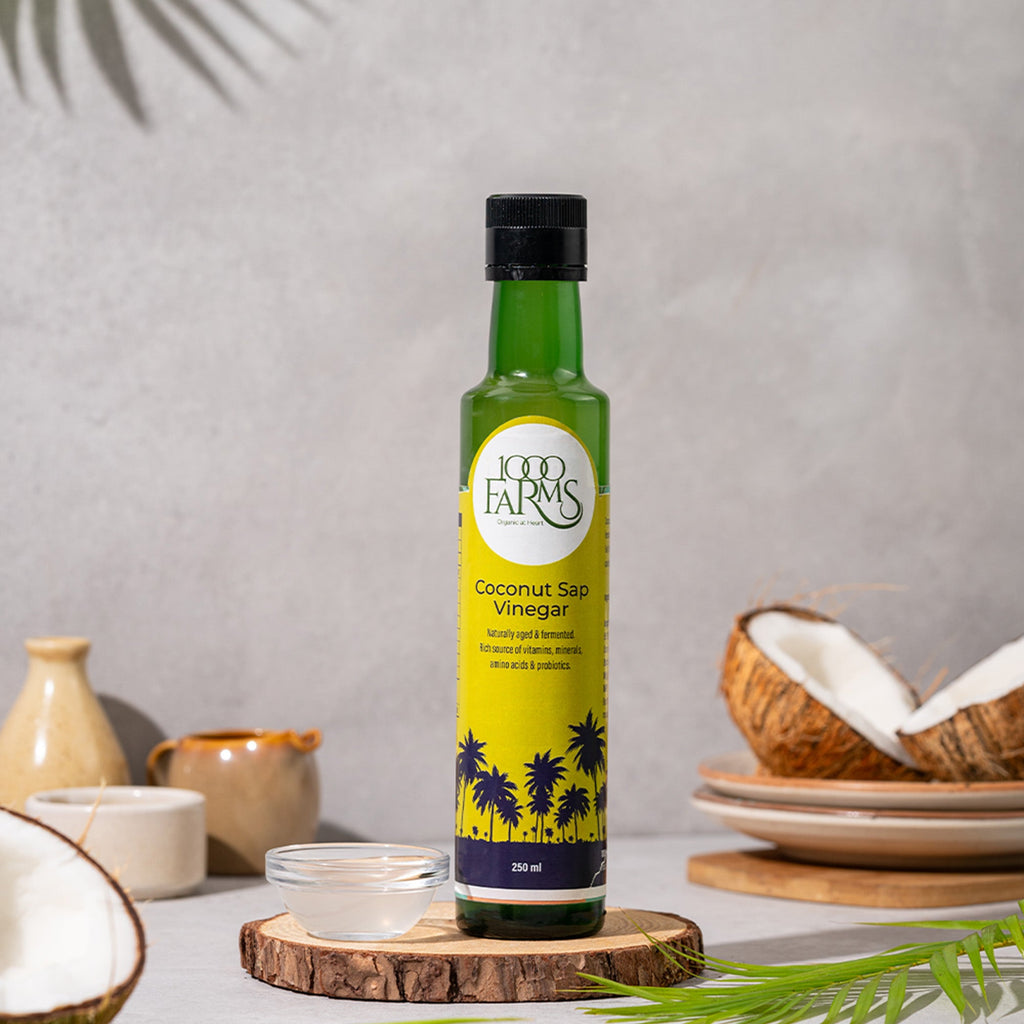
Comparing Organic and Conventional Coconuts - What’s the Difference

Introduction
Coconuts are a staple in tropical cultures and a superfood ingredient in kitchens worldwide. But as consumers become more conscious of how their food is grown, the question arises: should you choose organic or conventional coconuts? While both may look the same on the outside, their farming methods, environmental impact, and health implications can be quite different. In this blog, we’ll break down the key differences between organic and conventional coconuts to help you make a more informed choice.
1. Farming Practices
Conventional Coconuts:
- Typically grown using chemical fertilizers, synthetic pesticides, and weed killers.
- Focused on maximizing yield and speed of production.
- May use monocropping systems that reduce biodiversity.
Organic Coconuts:
- Grown without synthetic chemicals or GMOs.
- Use compost, organic manure, and natural pest control.
- Encourage crop rotation and intercropping to improve soil health.
Takeaway: Organic farming supports soil regeneration, plant biodiversity, and long-term sustainability.
2. Residue and Safety
Coconuts have a hard shell, but pesticide residues can still affect the environment and soil. Organic coconuts are free from chemical residues, making them safer for the environment and those involved in processing the fruit.
Why It Matters:
- Reduces toxic runoff into water bodies
- Lowers health risks for farmers and consumers
- Promotes a cleaner, safer food chain
3. Nutritional Quality
While the nutrient profile of the coconut flesh or water may not drastically differ between organic and conventional, organically farmed coconuts are less likely to contain trace toxins. Additionally, organic soil practices may improve micronutrient density in the long term.
4. Environmental Impact
Conventional Coconut Farming:
- Can lead to deforestation and habitat loss
- Depletes soil over time
- High carbon footprint due to chemical inputs
Organic Coconut Farming:
- Supports pollinators and native flora
- Reduces greenhouse gas emissions
- Enhances water retention and soil fertility
5. Ethical and Economic Considerations
Organic certification often comes with fair-trade practices and better labor conditions.
With Organic:
- Farmers receive fair wages
- Communities benefit from ethical supply chains
- Consumers support eco-conscious production
Why Choose 1000Farms Organic Coconuts?
1000Farms is committed to sourcing coconuts from certified organic farms that use regenerative practices. We work directly with smallholder farmers, ensuring transparency, sustainability, and consistent quality across our products.
Our Promise:
- No chemical residues
- Fair-trade partnerships
- Coconut products that are clean, ethical, and full of natural goodness
Conclusion
Choosing between organic and conventional coconuts isn’t just about health—it’s a vote for environmental sustainability and ethical farming. By choosing 1000Farms organic coconut products, you’re not only nourishing your body but also contributing to a better world.






